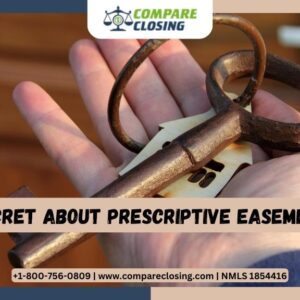Table of Contents
- What Are Netting Escrows & How Does It Work?: The Best Guide - January 2, 2024
- The Secret About Prescriptive Easement: Top Guide 1 Must Know - December 4, 2023
- About Home Equity Loans In Texas And How Can One Obtain It - November 27, 2023
About Fixtures in Real Estate
When buying or selling a property, it’s essential to understand the concept of fixtures in real estate.
Fixtures are an integral part of a property, and their determination can have significant implications for both buyers and sellers.
In this blog post, we will explore what fixtures are, how they are uniquely determined, and the impact they have on real estate transactions.
Defining Fixtures
In real estate, fixtures refer to items that are affixed to the property in such a way that they become part of it.
They are typically immovable and permanently attached, making them a crucial consideration in property transactions.
Fixtures can include items like built-in appliances, lighting fixtures, plumbing systems, heating and cooling systems, and even certain types of landscaping.
Uniquely Determining Fixtures
The determination of whether an item is a fixture or not can be a complex matter.
While some fixtures are obvious, such as a chandelier or a built-in oven, others can present more ambiguity.
Several key factors help uniquely determine whether an item qualifies as a fixture:
- Method of Attachment: The method by which an item is attached to the property is an essential factor in determining its fixture status. If an item is permanently affixed, such as by nails, screws, or bolts, it is more likely to be considered a fixture. Conversely, items that can be easily removed without causing damage are generally not fixtures.
- Adaptability: If an item is specially designed or customized to fit a particular space, it is more likely to be considered a fixture. For example, custom-made built-in shelves or cabinets are typically considered fixtures because they are designed to fit a specific area.
- The intent of the Parties: The intention of the buyer and seller plays a significant role in determining whether an item is a fixture. If the parties explicitly state their intentions in the purchase agreement or if it is commonly understood that an item is included or excluded from the sale, it can influence the fixture determination.
- Relationship to the Property: The item’s relationship to the property is another factor to consider. If the removal of an item would cause damage or alter the property’s functionality, it is more likely to be considered a fixture. For example, removing a central heating system would significantly impact the property’s value and functionality.
Legal Precedence and Jurisdiction
The determination of fixtures may also vary depending on the legal precedent and jurisdiction.
Courts often rely on established legal tests, such as the “intention test” or the “attachment test,” to decide whether an item qualifies as a fixture.
These tests help provide clarity and consistency in fixture determination.
It is crucial to consult local laws, regulations, and legal professionals familiar with real estate practices in your jurisdiction to ensure accurate and reliable determinations of fixtures in property transactions.
Local laws may have specific provisions that further define what qualifies as a fixture and may override any prior agreements between buyers and sellers.
Implications for Buyers and Sellers
Understanding fixtures is essential for both buyers and sellers in real estate transactions.
For sellers, identifying and properly disclosing fixtures to potential buyers can help avoid disputes and legal issues down the line. It ensures transparency and builds trust between parties.
Buyers, on the other hand, need to be aware of the fixtures included in the property they are purchasing.
Fixtures can significantly impact the value of a property and influence the decision to buy.
Being knowledgeable about fixtures allows buyers to make informed choices and negotiate terms accordingly.
Conclusion
Fixtures play a crucial role in real estate transactions, as they are an inherent part of the property.
Determining whether an item qualifies as a fixture is a multifaceted process, considering factors such as attachment, adaptability, intent of the parties, and relationship to the property.
Understanding fixtures helps both buyers and sellers navigate property transactions with clarity and confidence.
It is advisable to seek legal guidance and consult local laws to ensure accurate determinations in line with the jurisdiction’s requirements.
Amanda Byford
Amanda Byford has bought and sold many houses in the past fifteen years and is actively managing an income property portfolio consisting of multi-family properties. During the buying and selling of these properties, she has gone through several different mortgage loan transactions. This experience and knowledge have helped her develop an avenue to guide consumers to their best available option by comparing lenders through the Compare Closing business.






